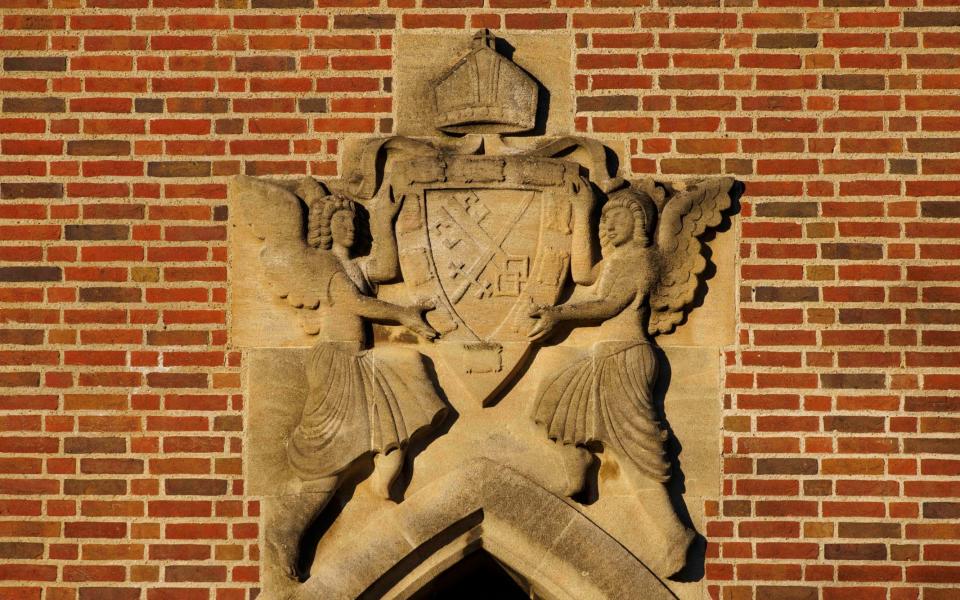Oxford college could remove statue by paedophile sculptor Eric Gill

An Oxford college could remove a statue of John the Baptist by Eric Gill following a protest against the paedophile artist's works at BBC headquarters.
Diaries published after of Gill's death revealed that he sexually abused his daughters, sister and family dog.
A Gill sculpture of John the Baptist stands above the gatehouse of St John's College. It will now be reviewed by the college to address the "pain caused" by the artist, with options under consideration including removing it and placing it elsewhere or placing explanatory signs near its location. No course of action has been agreed.
The review comes after a protester took a hammer to Gill's Ariel and Prospero sculpture, which adorns the entrance to BBC Broadcasting House in central London.
Zoe Hancock, the principal bursar at St John's College, told The Telegraph: "The college is aware of Eric Gill's history and the horrific impact of sexual abuse.
"We have started a process to review the most appropriate way of contextualising his work to acknowledge the pain caused to others, and are planning to do so in consultation with the college community."
The sculpture was given to St John's in 1936 by architect Sir Edward Maufe, who worked on an expansion of the college and commissioned religious works by Gill for Guildford Cathedral. The cathedral launched a review of his works after the Jan 12 protest at Broadcasting House.

Nigel Biggar, an Oxford professor of theology, said the St John's College review was part of a "bout of puritan iconoclasm" that could mean numerous historical figures are purged from public life because of their personal immorality.
He said: "Once you start, there's really no end to it. Gill must go because of his sexual abuse. Gandhi must go because of his expression of racial prejudice against Africans, Martin Luther King and JFK because of their infidelity… Churchill because he was an imperialist.
"Only those who think themselves without sin are capable of such moralising."
The review follows Oxford controversy sparked by the Rhodes Must Fall campaign, which demanded that a statue of mining magnate Cecil Rhodes be removed from the facade of Oriel College because of his promotion of British imperialism.
Robert Poll, the founder of campaign group Save Our Statues, said: "It seems the moral panic is spreading from subject matter to subject maker. But this is a worrying leap as it effectively brings every human creation within the scope of the new puritans who feel compelled to shout their intolerance.
"Admiring art does not mean venerating the failings of its creator, any more than admiring a statue means venerating the failings of its subject.
"We need to take a less simplistic approach to both our history and our public realm if we are ever to appreciate them without endless hand-wringing and virtue-signalling."

 Yahoo News
Yahoo News 
